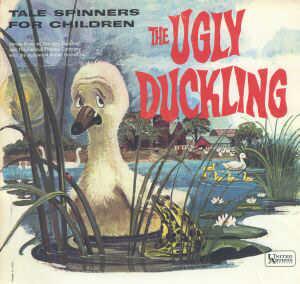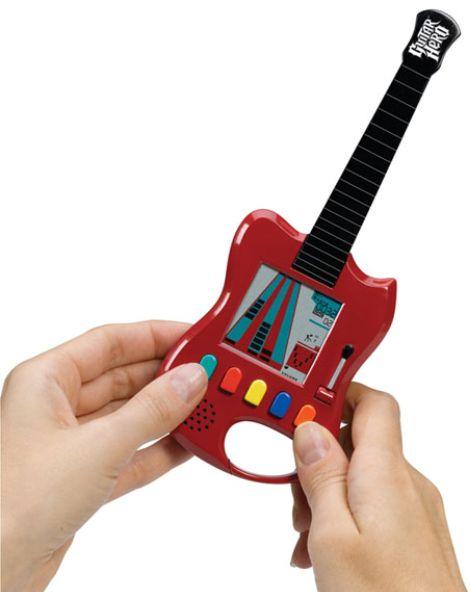
- •Unit 1 Topic: The usa Grammar: Revision of Tenses. Present Forms
- •1. Make nouns from the following verbs:
- •8. Use the verbs in brackets in the correct tense-form.
- •9. Put all possible questions to the sentences.
- •10. Translate into English.
- •1. Are the following statements about the text true or false? Why?
- •2. Answer the following questions.
- •3. Speak on the topic “The usa”.
- •Materials Technology
- •1. Combine the following words to receive word-combinations:
- •7. Comment on the use of the Past Progressive in the following sentences:
- •8. Comment on the use of the Past Perfect in the following sentences:
- •9. Comment on the use of the Past Perfect Progressive
- •10. Use the verbs in brackets in the correct tense-form:
- •1. Are the following statements about the text true or false? Why?
- •Metal Processing
- •1. Find pairs of synonyms.
- •2. Answer the following questions.
- •Factors Affecting Machinability
- •1. Are the following statements about the text true or false? Why?
- •Welding
- •1. Comment on the meaning of the following word groups:
- •6. Find the gerunds. Comment on their syntactic function.
- •9. Put all possible questions to the sentences.
- •10. Translate into English.
- •1. Are the following statements about the text true or false? Why?
- •2. Answer the following questions.
- •Welding Processes
- •1. Make nouns from the verbs:
- •2. Combine the following words to receive proper terms:
- •4. Replace the underlined words with antonyms where it is necessary:
- •5. Put the verbs in brackets in the necessary tense:
- •6. State the type of the subordinate clause.
- •7. Insert what, that or which.
- •8. Choose the conjunction which fits the meaning of the sentence. In some cases more than one will fit.
- •9. Put the verbs in brackets in the necessary tense:
- •10. Translate into English.
- •11. Read the text. Retell it in the past/future tense.
- •1. Are the following statements about the text true or false? Why?
- •2. Decode the following abbreviations:
- •Welding equipment
- •1. Are the following statements about the text true or false? Why?
- •Structure of Welding Faculty
- •Department of welding technology
- •Department of electric welding installations
- •Department of machinery parts restoration
- •1. Are the following statements about the text true or false? Why?
- •VI. Read the paragraph. What is success?
- •Do you think it’s important to be lucky to achieve success in life? Share your opinion concerning the quotations in italics. How to be Successful
- •Have you bought any of the books mentioned in the paragraph?
- •Do you agree with setting achievable realistic goals to use them as stairs to the target one?
- •Does being an optimist help you in being successful in life?
- •The Disadvantages of Success
- •On the scale from 1 to 10 how are material goods important in life for you?
- •II. Try to guess if the following statements are True or False:
- •I. Who do the characters from “Friends” look like:
- •II. Fill in the blanks with the names of the characters who said the following:
- •III. Find the pictures Ross, Rachel, Monica and Phoebe can be associated with basing on the information you’ve learnt from the movie:
- •IV. Answer the following questions:
- •V. Arrange the following events in the chronological order:
- •Vocabulary
- •I. Read the following examples from the movie and try to explain why this particular time form is used in each one:
- •II. Make up sentences in Future simple or using “to be going to” basing on the following pictures:
- •III. Fill in the blanks with the appropriate word:
- •V. Match the words from the first column with their antonyms in the second column:
- •V. Match the synonyms:
III. Find the pictures Ross, Rachel, Monica and Phoebe can be associated with basing on the information you’ve learnt from the movie:



1.Waitress Ross ___________ 2. fatherhood



3. Chef Phoebe ____________ 4. sonogram



5. Ugly duckling 6. guitar 7.paleontology



8. Prince Monica _____________ 9. twins



10. Neat freak 11.dentist 12.basket case



Rachel___________ 13. dummy 14. aromatherapy
IV. Answer the following questions:
What’s the difference between men’s and women’s vision of love?
Where does Ross work?
Why did Carol come to Ross?
What’s special about Monica’s behavior?
What did Rachel lose? Did anybody find what she’d lost? Where?
Is Carol for or against Ross being involved in raising a kid?
Who came to visit Ross and Monica?
Do parents treat Ross and Monica differently?
What was Monica like in her childhood?
Who did Barry go to Aruba with?
What were Susan, Carol and Ross arguing about?
Does Rachel wish all the best to Barry and Mindi?
V. Arrange the following events in the chronological order:
Ross goes to hospital with Susan and Carol._____
Ross tells his parents about “baby-lesbian” thing._____
Rachel loses her engagement ring._____
Carol tells Ross about her pregnancy._____
Rachel gets to know that Barry went to Aruba with Mindi._____
After you watch
Grammar: Future Simple and be going to (slang forms: gonna, wanna, gotta)
Vocabulary
to have issues= to have reasons
to catch up with smb= to see smb soon, to follow smb
to be twirly= to be in a state of anxiety
apparently=evidently
to dread=to fear, to be afraid
to be mad=to be angry
it’s up to you= you choose
selfish=mean, egocentric
to run into=to meet unexpectedly
chubby=fat, plump
to shoot the stars= to reach smth
pros=professionals
folks=parents
terrific=great
to get stuck= to have no possibility to move forward
challenge=difficulty
to well up=to become sentimental
Simple future, function
The simple future refers to a time later than now, and expresses facts or
certainty. In this case there is no 'attitude'.
The simple future is used:
a. to predict a future event: It will rain tomorrow.
b. (with I/we) to express a spontaneous decision: I'll pay for the tickets by
credit card.
c. to express willingness: I'll do the washing-up. He'll carry your bag for you.
d. (in the negative form) to express unwillingness: The baby won't eat his
soup. I won't leave until I've seen the manager!
e. (with I in the interrogative form) to make an offer: Shall I open the
window?
f. (with we in the interrogative form) to make a suggestion: Shall we go to
the cinema tonight?
g. (with I in the interrogative form) to ask for advice or instructions: What
shall I tell the boss about this money?
h. (with you) to give orders: You will do exactly as I say.
i. (with you) to give an invitation: Will you come to the dance with me?
Will you marry me?
NOTE: In modern English will is preferred to shall.
Shall is mainly used with I and we to make an offer or suggestion.
With the other persons (you, he, she, they) shall is only used in literary or
poetic situations, e.g. "With rings on her fingers and bells on her toes, She shall have music wherever she goes."
Future with Going to
1. Future with Going to - form
'to be' + going to + the infinitive of the main verb:
Subject 'to be' going to infinitive
She is going to leave
2. Future with Going to - function
The use of 'going to' to refer to future events suggests a very strong
association with the present. The time is not important - it is later than now, but the attitude is that the event depends on a present situation, that we know about. So it is used:
a) to refer to our plans and intentions:
We're going to move to London next year. (= the plan is in our minds now.)
Is Freddy going to buy a new car soon?
Are John and Pam going to visit Milan when they are in Italy?
I think Nigel and Mary are going to have a party next week.
b) to make predictions based on present evidence:
Look at those clouds - it's going to pour with rain! (= It's clear from what I
can see now.)
There's going to be a terrible accident!
He's going to be a brilliant politician.
I'm going to have terrible indigestion.
NOTE: It is unusual to say 'I'm going to go to...'
Instead, we use 'going to' + a place or event:
Examples:
We are going to the beach tomorrow.
She is going to the ballet tonight.
Note: In everyday speech, 'going to' is often shortened to 'gonna', ‘want to’ – to ‘wanna’ and ‘get to’ – to ‘gotta’ especially in American English.
